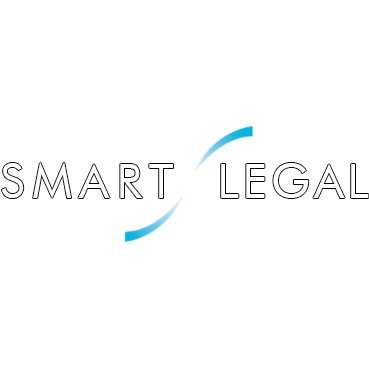Best Natural Resources Lawyers in Loganholme
Share your needs with us, get contacted by law firms.
Free. Takes 2 min.
List of the best lawyers in Loganholme, Australia
About Natural Resources Law in Loganholme, Australia
Loganholme, a suburb in Queensland, sits within an area rich in natural resources. The region benefits from diverse resources, including land, water, minerals, and forests, which require careful management and legal oversight to ensure sustainable use. Natural resources law in Loganholme encompasses a broad range of legal issues, aimed at governing the management, use, and protection of these resources. The law seeks to balance resource utilization with environmental conservation, focusing on sustainable development principles.
Why You May Need a Lawyer
There are several situations where individuals or businesses in Loganholme might need legal assistance concerning natural resources:
1. Resource Allocation Disputes: Legal disputes can arise over the ownership, use, or allocation of natural resources, requiring legal intervention to resolve conflicts.
2. Licensing and Permits: Operating businesses that exploit or manage natural resources often need specific licenses and permits, which can be complex to apply for and maintain.
3. Environmental Compliance: Companies must adhere to environmental laws and regulations. Non-compliance can lead to substantial legal penalties and environmental restoration obligations.
4. Land Use and Development: Legal advice may be necessary to navigate the approval processes for land development projects that could impact natural resources.
5. Indigenous Rights: Understanding and respecting the legal rights of Indigenous peoples related to land and resource use is crucial, often necessitating legal guidance.
Local Laws Overview
Loganholme, as part of Queensland, is subject to both state and federal natural resources legislation. Key aspects include:
Environmental Protection Act 1994: This act emphasizes minimizing environmental harm and ensuring ecologically sustainable development.
Water Act 2000: It regulates the use of water resources in Queensland, affecting how water is used for agriculture, industry, and domestic consumption.
Mineral Resources Act 1989: This act governs the exploration and extraction of mineral resources, ensuring these activities are conducted sustainably.
Vegetation Management Act 1999: Regulates the clearing of native vegetation crucial to biodiversity and land conservation.
Aboriginal Cultural Heritage Act 2003: Protects cultural heritage sites in Queensland, impacting certain land and resource use decisions.
Frequently Asked Questions
1. What constitutes a natural resource in Loganholme?
Natural resources include water, minerals, land, forests, and biodiversity found naturally in Loganholme and the surrounding region.
2. How do I obtain a permit for using natural resources?
Contact the relevant government body, such as the Department of Natural Resources, Mines and Energy, to apply for necessary permits. It's often advisable to seek legal guidance for complex applications.
3. Who manages the natural resources legislation in Queensland?
The Department of Environment and Science, alongside other specific regulatory bodies, administers and enforces legislation related to natural resources in Queensland.
4. What are the penalties for non-compliance with natural resources laws?
Penalties can range from fines to criminal charges, depending on the severity of the violation and the specific laws breached.
5. Can I develop land that includes a waterway?
Development near waterways is subject to strict regulation to protect biodiversity and water quality. Consult local council and environmental planners.
6. Are there specific rights for Indigenous people regarding natural resources?
Yes, Indigenous rights, including land use and access, are protected by various laws and often require specific legal consideration during resource management.
7. How are environmental disputes resolved?
Disputes may be resolved through negotiation, mediation, or legal action in the Land Court or other appropriate forums.
8. Do I need environmental impact assessments for small projects?
It depends on the project's nature and location. Consult with local authorities or legal experts to determine requirements.
9. What role does local government play in natural resource management?
Local government enforces zoning and land use regulations and works with state and federal bodies to manage local environmental initiatives.
10. How can businesses reduce their environmental impact?
Businesses can adopt sustainable practices, implement environmental management systems, and ensure compliance with relevant laws.
Additional Resources
For those seeking further assistance or information, consider the following resources:
Queensland Government Websites: Provide comprehensive information on legislation, permits, and environmental initiatives.
Local Council Offices: Loganholme local council can provide information on land use planning and development applications.
Department of Environment and Science: Offers guidance on state policies regarding natural resource management and environmental protection.
Legal Aid Queensland: Provides legal advice and assistance for eligible individuals and organizations.
Community Legal Centres: Offer free or low-cost legal services, particularly for those dealing with public interest matters.
Next Steps
If you require legal assistance with natural resources in Loganholme, consider the following steps:
1. Identify Your Legal Needs: Clearly define the issue or assistance you require; this will help in finding specialized legal support.
2. Research and Choose a Lawyer: Look for lawyers or law firms specializing in natural resources law in Queensland.
3. Prepare for Consultations: Gather relevant documents and information to discuss during your initial meeting with a lawyer.
4. Consider Alternative Dispute Resolution: Explore mediation or arbitration as cost-effective and timely solutions to legal disputes.
5. Stay Informed: Keep up with new laws and regulations that may affect your situation or business practices.
Lawzana helps you find the best lawyers and law firms in Loganholme through a curated and pre-screened list of qualified legal professionals. Our platform offers rankings and detailed profiles of attorneys and law firms, allowing you to compare based on practice areas, including Natural Resources, experience, and client feedback.
Each profile includes a description of the firm's areas of practice, client reviews, team members and partners, year of establishment, spoken languages, office locations, contact information, social media presence, and any published articles or resources. Most firms on our platform speak English and are experienced in both local and international legal matters.
Get a quote from top-rated law firms in Loganholme, Australia — quickly, securely, and without unnecessary hassle.
Disclaimer:
The information provided on this page is for general informational purposes only and does not constitute legal advice. While we strive to ensure the accuracy and relevance of the content, legal information may change over time, and interpretations of the law can vary. You should always consult with a qualified legal professional for advice specific to your situation.
We disclaim all liability for actions taken or not taken based on the content of this page. If you believe any information is incorrect or outdated, please contact us, and we will review and update it where appropriate.









